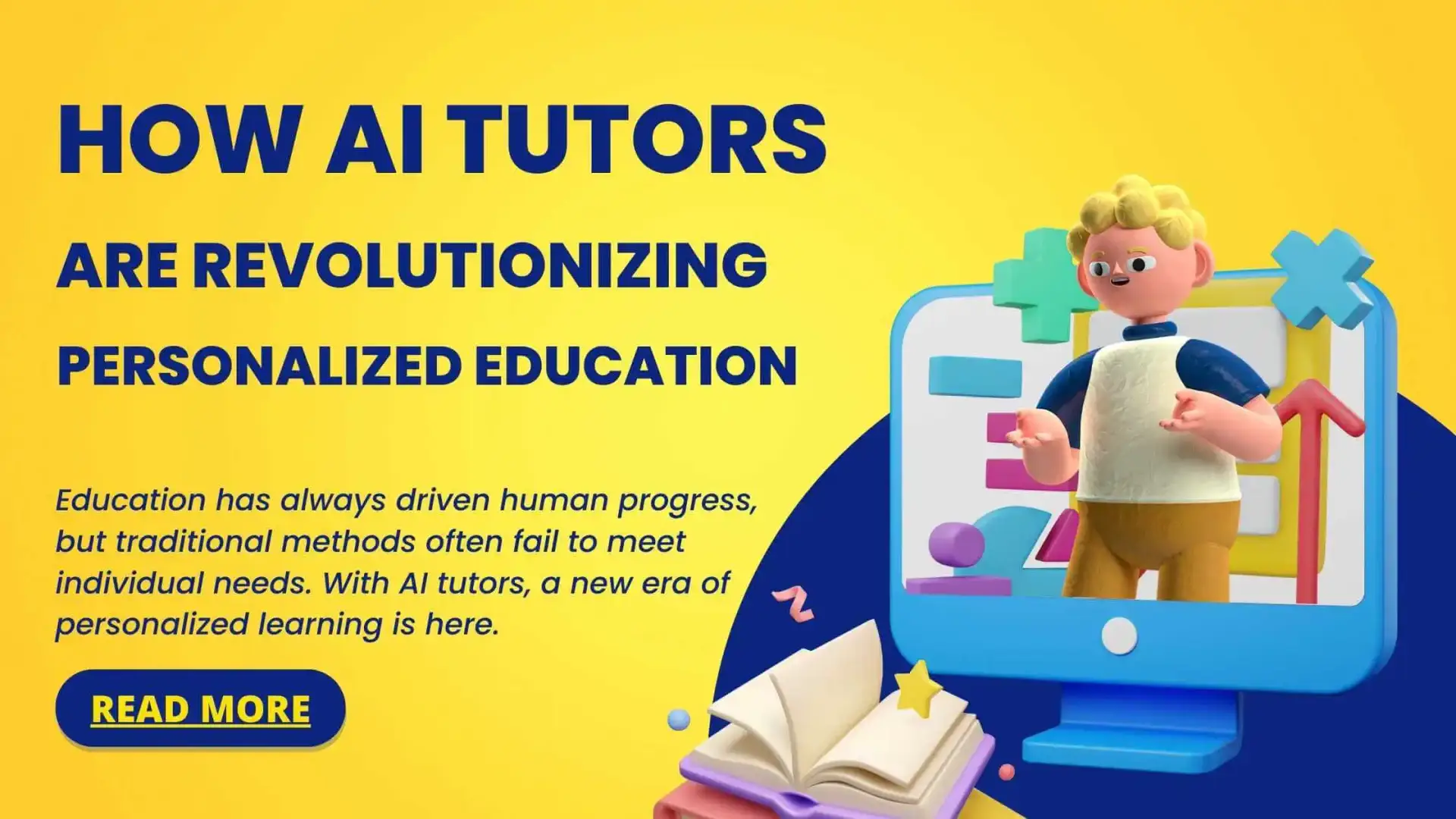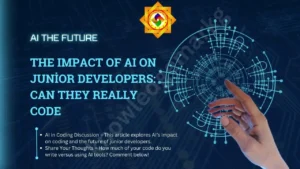The Future of Education: How AI tutors and Customized Learning Are Transforming Learning
Introduction (AI tutors)
Education has always been a driving force behind human progress. Yet, traditional teaching methods often struggle to meet the unique needs of individual learners. With the rapid advancement of technology, particularly artificial intelligence (AI tutors), education is undergoing a paradigm shift.
Imagine a learning experience tailored to your pace, preferences, and strengths—a future where education is as dynamic as the learners themselves. This is no longer a distant dream but a present reality.
In this blog, we explore the transformative role of AI in education, its benefits, challenges, and future trends that promise to revolutionize how we teach and learn.
The Role of AI in Education
AI in education transcends automation; it’s about creating a personalized, adaptive, and efficient learning environment. Traditional classrooms often follow a rigid structure, but AI systems analyze individual patterns to deliver customized solutions.

How AI is Revolutionizing Education
- AI Tutors
AI tutors act as virtual assistants, providing instant guidance to learners. They can answer questions, explain complex concepts, and simulate real-world scenarios, making learning interactive and effective. - Individual Learning Tracks
AI systems analyze student data to design customized learning pathways. For instance, if a learner struggles with algebra, the system identifies the gap and suggests targeted exercises to improve proficiency. - Gamified Learning Experiences
Gamification powered by AI adds an element of fun to education. Challenges, rewards, and interactive content keep students engaged, fostering sustained interest in learning. - Real-Time Feedback
AI continuously tracks a student’s progress, offering immediate feedback. This helps students address weaknesses quickly while enabling educators to fine-tune their teaching methods. - Language Translation and Accessibility
AI tools break language barriers by translating lessons into multiple languages. Features like speech-to-text and visual aids also make learning accessible to students with disabilities.
Benefits of AI Tutors and Customized Education
AI is revolutionizing education by addressing its most pressing challenges. Here are the key benefits:
- Personalized Learning
AI ensures individualized attention, often missing in traditional classrooms, allowing students to learn at their own pace. - Lifelong Learning Opportunities
From school students to professionals, AI-powered platforms enable people to upskill in diverse fields, supporting continuous learning throughout life. - Reduced Pressure on Educators
AI automates repetitive tasks like grading and lesson planning, giving teachers more time to focus on creative and interactive teaching. - Inclusivity and Accessibility
AI supports learners of all abilities by offering customized resources, making education inclusive and equitable. - Global Reach and Scalability
AI eliminates geographical barriers, offering quality education to remote areas and underserved communities.
Challenges of AI in Education
While AI has immense potential, its implementation faces several challenges:
- Privacy Issues
AI systems rely on extensive data collection, raising concerns about data security and ethical use. - Access Inequality
Underdeveloped regions with limited technological infrastructure may struggle to adopt AI-powered education. - Limited Human Interaction
AI lacks the emotional connection and mentorship that traditional educators provide, which can hinder holistic development. - High Implementation Costs
The initial costs of adopting AI, including infrastructure, training, and software, can be a barrier for many institutions. - Resistance to Change
Educators and institutions may resist adopting AI due to a lack of technical skills or skepticism about its effectiveness.
Future Trends in AI Education
- Immersive Learning with VR and AR
AI, combined with virtual and augmented reality, can create hands-on, immersive learning experiences, from exploring ancient civilizations to conducting virtual science experiments. - AI-Driven Assessments
AI will transform evaluations by providing real-time, unbiased assessments tailored to individual learning styles. - Career-Specific Learning
AI will offer career-focused courses, bridging the gap between education and industry demands. - AI and Emotional Intelligence
Future AI systems will recognize emotional cues and adapt teaching methods to enhance engagement and well-being. - Collaborative Ecosystems
AI will foster collaboration between students, educators, and parents, creating a more holistic learning environment.
FAQs
1. What is the primary function of AI tutors?
AI tutors provide personalized support by analyzing individual learning needs, delivering relevant content, and ensuring students grasp complex topics effectively.
2. Can AI replace teachers?
No, AI cannot replace teachers. It is a tool to enhance teaching efficiency, helping educators focus on mentoring and fostering creativity.
3. How does AI enable personalized learning?
AI analyzes a student’s performance data and learning preferences to create tailored learning pathways that address their unique strengths and weaknesses.
4. Is AI in education expensive?
While initial implementation costs can be high, AI platforms are cost-effective in the long run due to scalability and reduced administrative expenses.
5. What are the ethical concerns of AI in education?
Ethical concerns include data privacy, algorithmic biases, and ensuring equitable access to technology for all learners.
Conclusion
AI tutors and customized learning solutions are redefining education, making it more accessible, engaging, and effective. By personalizing learning experiences, providing real-time feedback, and addressing individual needs, AI has the power to transform traditional education.
However, challenges like data privacy, access inequality, and balancing AI with human interaction must be addressed to unlock its full potential. The future of education lies in a harmonious blend of human creativity and AI precision, empowering learners and educators alike.
Embracing AI in education is not just an innovation; it’s a necessity for building a smarter, more inclusive world.
Also Read
- Top 21 amazing and useful websites 2025 Best in 2025
Top 21 amazing and useful websites 2025″ – You’ll be surprised to learn about these unique and helpful websites! From fun tools to productivity boosters - W3Schools: The Best Website for Free Online Web Tutorials 2025
Explore W3Schools, a leading platform offering free tutorials on HTML, CSS, JavaScript, PHP, Python, and more. - 4 Key Ways to Keep Visitors Coming Back to Your Blog (Ultimate Guide 2025)
Discover the top 4 strategies to keep visitors returning to your blog. Learn how to engage readers, increase blog traffic, and retain loyal followers with this comprehensive 2025 guide.



